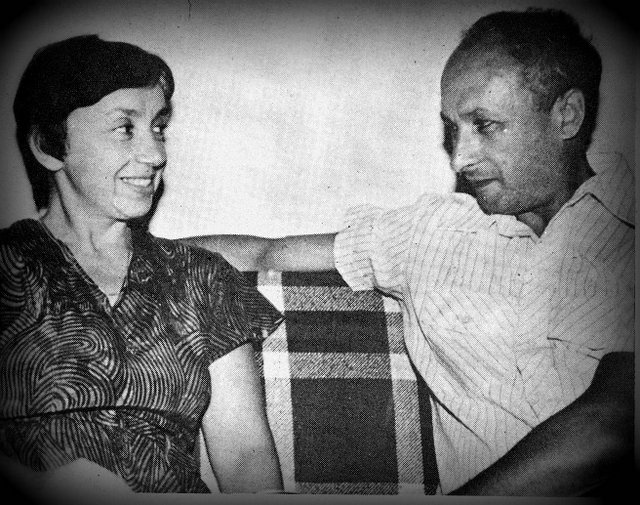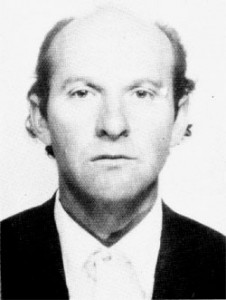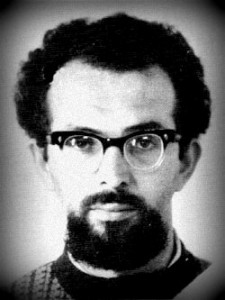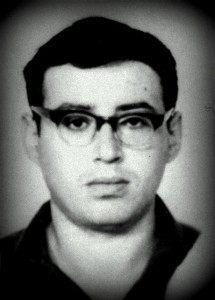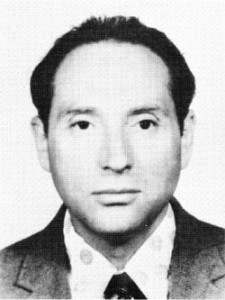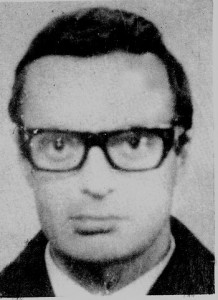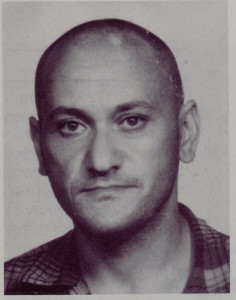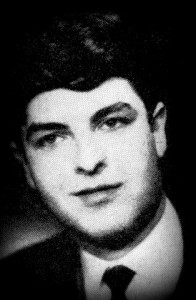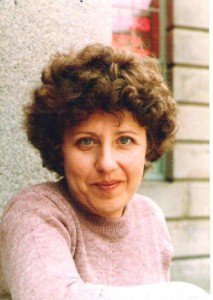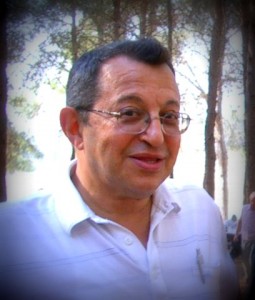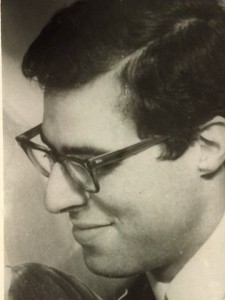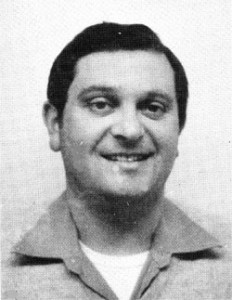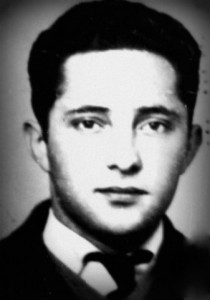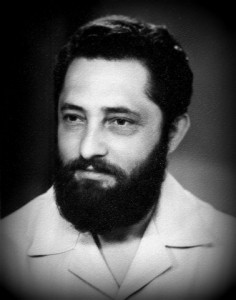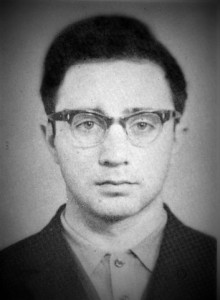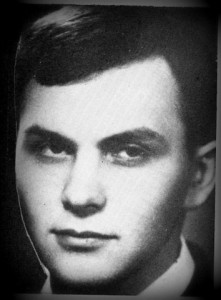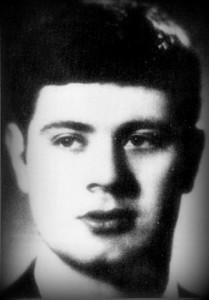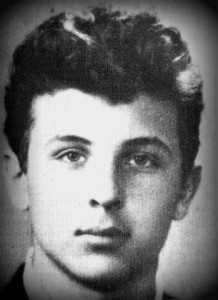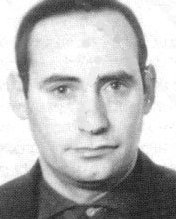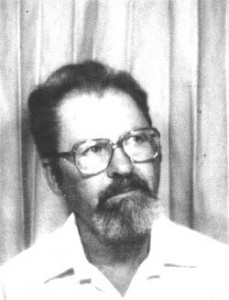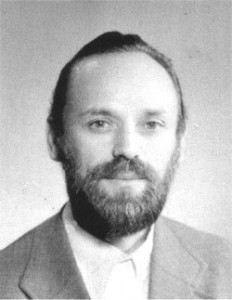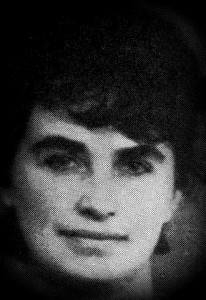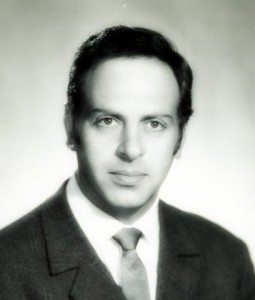At the Brussels Conference, world Jewry declared its unconditional support of its brethren in the USSR whose efforts to bring about a national revival subjected them to cruel reprisals. The Soviet authorities, whose regime was based on total control of the population and a categorical rejection of any foreign interference, began to get nervous.
The bloody purges of the Stalinist regime, accompanied by praises for the infallible party line, had their effect: citizens learned how to think “correctly” and feared to think “incorrectly.” After the old methods were publicly condemned during the Thaw, the KGB had to adapt to the new conditions and halt the mass terror, but in principle their approach remained the same: incessant brainwashing, intimidation, and harassment of those who dared to resist. Long seeking a pretext to crush the Zionist movement, the authorities considered that the attempted hijacking would be a convincing one both for foreign and domestic consumption.
A wave of repressions accompanied by a powerful propaganda campaign was unleashed. It encompassed Leningrad, Riga, Kishinev, Odessa, and Sverdlovsk. Although the situation was somewhat different in Bendery [now Bender, in Moldova], even there the arrestees Yakov Suslenskii and Iosif Meshener felt that their situation had worsened under the influence of the Leningrad trial. The wave of persecution might have been even harsher if the authorities had not gotten carried away by what they regarded as a brilliant operation. They handed down the severest punishments, including the death penalty, for an aborted hijacking attempt that the free world perceived as a desperate demonstration against the Soviet restrictions on emigration.
The West embarked upon a powerful protest campaign. Even leftists liberals who normally sympathized with the USSR could not understand such severity. The protests of Jewish and human rights organizations and the statements of public and political figures struck at the Soviet image abroad like whip lashes, leaving painful traces.
The delay in conducting the Second Leningrad Trial and the other trials was, apparently, evoked by a desire to let the wave of protests subside. Moreover, the 24th Congress of the CPSU was scheduled for the end of March. Representatives from western communist parties were invited to these congresses and, sensitive to criticism in their homelands, they were compelled to pose uncomfortable questions to the Soviet leadership. In order to defuse the situation in the West and create a more favorable atmosphere for the congress “two of the largest communist papers of Western Europe ─ the Italian Unita and French l’Humanité, declared on January 15, 1971 that according to information from reliable Soviet sources the trials would not continue.”[1]
Either it was a planted lie or the French and Italian delegates were deliberately misled, but after the foreign delegates departed, the trials were renewed. The KGB, however, had learned their lesson that trials against Jewish activists would draw the West’s careful attention and evoke continuous protests. Moscow, therefore, took control of the trials into its own hands, which were gentler than those of the Leningrad authorities.
The Second Leningrad Trial
At first the KGB, apparently, wanted “to link the plane hijacking attempt with the Leningrad Zionist Committee organization…. Even the number of the case was the same, no. 15.”[2] Six members of the Leningrad organization were arrested on the same day as the “hijackers,” on June 15, 1970. Lev Yagman was detained in Odessa, where he was spending a vacation with his family; Hillel Butman was arrested at his dacha near Leningrad, Lev Korenblit at home; and Lassal Kaminskii, Vladimir Mogilever, and Solomon Dreizner were taken at work. The arrestees did not know that the hijacking attempt had occurred that morning. How carefully the KGB must have been following the movements of the Jewish activists in order to be able to arrest them all and many others almost simultaneously at various spots in the Soviet Union. On that same morning searches were conducted in the homes of the arrestees and of other activists. Regarding the search in his home Viktor Boguslavskii wrote to the Soviet prosecutor general Roman Rudenko: “The searches were conducted in order to confiscate the ‘criminal weapons.’ The confiscated weapons were letters and postcards from relatives and friends in Israel and also any texts containing the words ‘Jew’ or ‘Jewish.’ Particularly texts that were typewritten. The typewriters themselves were also declared “criminal weapons” and were confiscated. Invitations from relatives in Israel were also confiscated.”[3]
Three weeks later, on July 8, Boguslavskii was also arrested as were Viktor Shtilbans on August 20 and Mikhail Korenblit on October 27.
The KGB was unable convincingly to link the Leningrad organization with the hijacking attempt. At the same time overseas protests had taken on such an unprecedented scale that the very term “Leningrad trial” became a synonym of cruelty and injustice. The regime thus decided not to link the trial against the underground Zionist organization to the “hijackers.” Back in April 1970, KGB Chairman Yuri Andropov had informed the CPSU Central Committee of “the existence of a Zionist organization in Leningrad consisting of five groups of nationalistically minded citizens, with five individuals in each.”[4]Andropov stated that it was Butman who proposed conducting a certain action that was opposed by the majority of the committee members.
The members of the Leningrad organization were arrested in June but the trials began only the following May, which was a patent violation of procedural norms. In the course of the year the “organs” carried out dozens of searches and summoned hundreds of people for interrogations. Leningrad was purged broadly, deeply, and thoroughly. After the two Leningrad trials, Zionist activity in the city died out for several years.
The concluding charge began with a rebuke to international Zionism: “Contemporary international Zionism is one of the most active reactionary forces serving the interests of imperialism and trying to carry out subversive activity against socialist countries…”[5]and it continued in that vein.
The charge subsequently focused on the participation of individuals from Leningrad in the All-Union Coordinating Committee and then it spoke directly of the Leningrad organization:
In March-April 1970, Butman, Mogilever, Dreizner, and Mikhail Korenblit in cooperation with others prepared and together with Kaminskii, Yagman, L. L. Korenblit and other like-minded individuals on April 4 held an illegal “conference” of the anti-Soviet Zionist organization at which they discussed and adopted a “program” and “charter” suggested by Mogilever that envisioned promoting underground activity to develop anti-Soviet Zionist convictions among Soviet citizens of Jewish nationality….[6]
The charge also mentioned the preparations for the hijacking:
Recognizing that the planned crime was especially dangerous and could lead to undesirable consequences, in particular the uncovering of the anti-Soviet organization and causing harm to international Zionist circles, at gatherings in April 1970, the accused Butman, Mogilever, Dreizner, Kaminskii, L.L. and M. S. Korenblit and their accomplices decided that the question of carrying out the plane hijacking and treason should be coordinated with government organs of the State of Israel and in the case of a positive answer to continue their criminal activity in preparing and implementing [it]…. At meetings with Dymshits and Kuznetsov in May 1970, the accused Butman, by giving advice and suggestions on attracting new accomplices to the treasonous group, in the area of hostile actions abroad and on other issues continued to cooperate in preparing the treasonous act that the indicated individuals in the armed group tried to carry out on June 15, 1970 but were detained in the course of the attempt.[7]
The Second Leningrad Trial took place from May 11-20, 1971 in the Leningrad municipal court building.. Although the trial was supposedly open, even the defendants’ relatives had to appeal to the Soviet prosecutor general, Roman Rudenko, before they were permitted to enter the courtroom.[8] The local and all-union press heated up the atmosphere in the courtroom. For example, the newspaper Leningrad Pravda on May 12, 1971 wrote that the accused were among the initiators of the planned hijacking and “systematically engaged in preparing and disseminating anti-Soviet literature for which they utilized copying apparatus, including equipment stolen from state institutions and they also illegally transmitted slanderous information abroad.”[9] On May 13 this report was reprinted in the nation-wide newspapers Izvestiia and Sovetskaia Rossiia.
On May 20, 1971 the court sentenced the defendants to various terms of imprisonment in strict regime camps: Hillel Butman to ten years; Mikhail Korenblit to seven years; Lassal Kaminskii and Lev Yagman to five years; Vladimir Mogilever to four years; Solomon Dreizner and Lev Korenblit to three years; Viktor Boguslavskii to three years; Viktor Shtilbans to one year. The appeals court that met on July 20,1971 inthe Judicial Collegium of the RSFSR Supreme Court left the sentence unchanged.
The Riga Trial
On June15 inRiga not only the “hijackers” but also three people who were not related to that case ─ Arkadii Shpilberg, Boris Maftser, and Ruth Aleksandrovich ─ were subjected to searches.
The search of Arkadii Shpilberg was conducted both at home and at his place of work, the design section of the Riga train car factory. Shpilberg was accused of intending to “commit treason” and he was requested to “hand over fire arms and explosives and also anti-Soviet literature.” During the search the KGB confiscated books and journals with any mention of Jews, Israeli postcards, letters from Israel, and Shpilberg’s appeals to various offices regarding immigration to Israel.
Searches were conducted at the home of Boris Maftser’s mother and in the rented apartment where he was living. Books and journals related to Jewish topics were confiscated. After the search Maftser was brought to the KGB for interrogation.
Searches were carried out in Ruth Aleksandrovich’s Riga apartment and in the dacha that her family had rented for the summer. June 15 was Ruth’s birthday and guests began to gather around five o’clock in the afternoon. The KGB detained all of them and wrote down their names. No one was permitted to phone until the end of the search. Soon the home was filled with guests. The “anti-Soviet Zionist literature” that was confiscated included books on Jewish history, the Hebrew language textbook Elef Milim, Israeli postcards, etc. The KGB confiscated notebooks and any pieces of paper with names, addresses, or telephone numbers from Ruth, as from the others.
Interrogations followed the searches. Dozens of Jews were summoned to the KGB as witnesses. They were asked to give testimony about the “anti-Soviet activity” of the suspects and to confess to their complicity. Those witnesses who refused to give the testimony that the KGB needed were often threatened with arrest. Apprehensions became stronger that the KGB was preparing broad reprisals against activists in the Jewish movement.[10] Boris Maftser and Aron (Arkadii) Shpilberg were arrested on August 4, 1970. Pressure on Ruth Aleksandrovich was intensified. In September alone she was summoned eight times to the KGB for interrogations. They demanded that she give the “necessary” testimony and threatened her with arrest but did not attain anything. In the last third of August 1970, Ruth wrote an open letter entitled “In Expectation of Arrest”:[11]
My friends are being arrested one after the other and, apparently, my turn will come in the next few days. Of what am I guilty? I shall be tried only because I am a Jewess, and as a Jewess I cannot imagine my life without Israel….
I don’t know how my fate will unfold. I don’t know how many years of my life will be taken away by prison or camp or how much my health will suffer, but I promise everyone who is not indifferent to my letter that no one will ever be able to take away my conscience or heart…. I shall never betray my most cherished dream ─ to work and die in Israel.
Two weeks later, on October 7th, she was arrested, ten days before her scheduled marriage to Isai Averbukh in a Riga synagogue. Isai appealed to various Soviet authorities with a request to register their marriage, which was permitted by law, but his request was denied. He then appealed to the chief rabbi of Israel, Rabbi Yehuda Unterman to conduct a huppah in their absence.[12] His request was supported by Ruth’s mother Rebecca, but after some hesitation the chief rabbinate did not agree to do so.
The wedding took place a year later when the couple arrived in Israel. WIZO, the worldwide women’s Zionist organization, arranged a lavish wedding for them with over a thousand guests, including Prime Minister Golda Meir, the head of the opposition Menachem Begin, and the legendary defense minister, Moshe Dayan.
Mikhail Shepshelovich, aged 28, an active participant in samizdat activities, was arrested on October 15.
On September 28, 1970 the case of Maftser and Shpilberg was separated from the “hijacking” case. Now all four were accused of conducting anti-Soviet agitation and propaganda and Maftser and Shpilberg were also charged with anti-Soviet organizational activity.
I asked Elie Valk about the start of the Riga trial:[13]
On June 15 I learned that Ruth Aleksandrovich, Maftser, and all the fellows in Leningrad had been detained. We began to “purge” apartments, realizing that we, too, would be searched. On August 4 they came to my wife’s apartment, where I was living, and to my mother’s apartment, where I was registered. They also went to my older brother’s apartment. After that they summoned me to interrogations a couple of times. I remember that several people who had gone through the Stalinist prisons and labor camps instructed me on how to live in prison without losing one’s humanity ─ health, steadfast spirit, and all that. It was clear that the KGB was supposed to arrest me too.
I heard that you had heart problems?
Yes, I have had these problems since age five and had the status of a second-degree invalid.
What were you asked about at the interrogations?
About Moscow…what, why…and they began to tell me details that only one person could know. The first interrogations took place soon after the search in August. The basic interrogations were in November, fourteen days in a row. I said, “I don’t know a thing, I didn’t give anything to anyone.” They said, “Fine, you’ll have a face-to-face confrontation.” I was already sufficiently knowledgeable, having read the criminal procedural code. They would bring my friend who would confirm, “Yes, he gave this to me and I gave him that.” And I would say, “I don’t know anything; in your place a person can say all sorts of things.” I was fully prepared for being arrested. They interrogated me primarily on the Riga case, that is, on preparing and disseminating Zionist literature but not on the “hijacking case.”
Did you speak to them?
I spoke, saying that we didn’t do anything anti-Soviet. We want to leave, do what you want. When I told Buba Tseitlin about the interrogation, he commented, “Life has become completely not normal. In my day until they barked ‘you mother-f…,’ pounded their fist on the table, or punched you in the mug, no one would even open his mouth. And now they talk to you and you answer…” The times were different. One fine day the interrogation ended and you weren’t given an agenda for the next one.
They didn’t even really threaten you?
No. They said that the nature of the crime was obvious and I would serve time like the other Rigans ─ Maftser, Aleksandrovich, Shpilberg, and Shepshelovich.
What about Iosif Mendelevich?
He’s from Riga but he was tried in the first Leningrad Trial. He was also asked about everything. He was one of the leaders in all the Riga activities but he was tried in Leningrad. Later the KGB phoned me and suggested that I collect the things that had been confiscated in the search. “You took them and you can bring them back,” I said. “That’s the first time we’ve heard such insolence. If you don’t come, we’ll throw them into the garbage.” There were Israeli records there. At the time I was ill. “My brother will drop in,” I said. I then participated in organizing the transfer of information about the trial to the West and to Israel.
Was there a particular channel of communication?
No. People from abroad would arrive and show certain photographs or papers and then I knew that I could be in contact with them. The Riga trial ended on May 24. About ten days before it ended, I received an exit visa. Evidently the KGB realized that they would get very little from me. A person sitting at a face-to-face confrontation would say, “On such and such a date I gave you this and that,” and I would reply, “I don’t know anything; I didn’t give you anything; you are slandering me in vain.” When I was already at the train station, Ruth’s father conveyed to me the sentence in the trial.
Did the whole family receive visas?
My brothers and mother left two months earlier but I was kept as a hostage at the trial. This was a time when everyone was leaving, everyone who signed protest letters. Dozens of families left.
Aron Shpilberg was born in Leningrad in 1938. His father was a veterinarian and his mother a textile engineer.
My father was a Zionist. I first heard “Hatikvah” from him, he recalls.[14]
So you matured early?
Our home room teacher at school was also the secretary of the [communist] party organization. When the “doctor-wreckers” were arrested in 1953, he informed us, fifteen-year old school children, that agents of the espionage organization “Joint” had infiltrated everywhere and there was no doubt that they were among us, too. There was one more Jew besides me in the class. The Soviet people, it’s true, were disciplined and didn’t carry out a pogrom without an order.
When did you become an activist?
Only after meeting David Chernoglaz in 1964. We began to form Jewish groups. When we heard that people from Riga were leaving the country, we decided to go there and take a look. From a friend I got the address of a fellow named Mordechai Blum and I went there. This Riga fellow played an important role in my life. He gave me a tape cassette with Hebrew songs, told me about the various directions of activities, and explained how to celebrate Jewish holidays. Some time later a girl came to do practical work in Leningrad and brought me books by Dubnov from Blum…she later became my wife. We subsequently succeeded in exchanging a room in Leningrad for an apartment in Riga, and in October 1967 we moved there. Our decision was influenced not only by family circumstances but also by the fact that there was a small amount of immigration to Israel from Riga.
Did you know about the “hijackers” before your arrest?
No. No one told me directly about it. At that time I already had a daughter and my wife was in the ninth month of a second pregnancy.
Did you teach Hebrew?
I found out that Shapiro’s Hebrew dictionary appeared at the kiosk in the Electro-technical Institute; that was in 1966. I had already received Shlomo Kodish’s handbook from Blum. I was later sent on a work assignment to Moscow where an old Jew gave me several Hebrew lessons. After my return to Leningrad, I began to teach, but not in Riga where there were people on a higher level. I didn’t see ulpans there; that was customary in Leningrad.
What were the charges against you?
At first, treason, that is, as if I also participated in the hijacking attempt, but then I was charged with anti-Soviet activity.
Did you try to establish a branch of the Leningrad organization in Riga?
I neither tried nor considered it right to create a formal organization. Why help the Soviet “justice system”? Even without an organization we were very active.
But in Leningrad you were a member of the organization?
In Leningrad I didn’t oppose it.
You paid membership dues.
What does it mean “membership dues”? In Riga we also collected money but it isn’t necessary to call it dues; we needed it for our activity. We had to buy paper and typewriters. All this was done in Riga. Moreover, Riga provided literature for Leningrad and other places. In Riga there were people who were willing to work selflessly. Many of them, unlike in Leningrad, did not have a higher education but they were remarkable people.
Yes, I remember, in Sverdlovsk the samizdat was also from Riga. Did you have your group?
Yes.
How many people?
Let’s say that I collected dues from four people.
What happened during the investigation?
For ten days I refused to testify at all. Then, when they began to read me the testimony of Dreizner and Maftser, I began to testify about what they already knew. For example, not long before my arrest, I sent a letter to Brezhnev that was published in the West. They asked whether it was mine. “Yes,” I said, and now, too, I still think the same way.” All the material against me was based on my activity in Riga because I had left Leningrad in 1967.
The items in the charge against Shpilberg compiled by KGB deputy director Viktor Chebrikov, included participation in the preparation and dissemination of:
…Leon Uris’ book Exodus, which defames the policy of the Soviet state…
the pamphlet For the Return of the Jewish People to the Homeland, containing fabrications about the status of Jews in the USSR….
In autumn 1969, Shpilberg took part in the drafting and discussion of the slanderous appeal “Your Native Language” and in the preparation of film with three versions of this document and gave to Maftser (arrested in the same case) some sheets of negatives to entrust to members of the so-called “All-Union Coordinating Committee….
At the beginning of 1970 Shpilberg received from Maftser for distribution 1-2 copies of the illegal anthology Iton 1 and five copies of Iton 2 containing slanderous fabrications about the Soviet Union’s foreign and domestic policy….[15]
What line of defense did you chose at the investigation, Aron? I asked Shpilberg.[16]
A Soviet court is not the place for settling personal accounts. I had a clear line. If a witness testified against me, I said that he had been intimidated and therefore he was willing to testify to anything that the investigator wanted him to say. That’s how I reacted, for example, to Maftser’s testimony.
He said what he was ordered to?
He was not a provocateur…in fact he spoke the truth, which, of course, does not exculpate him. If the political situation hadn’t changed and Moscow hadn’t taken matters in its hands, many people would have been arrested who were allowed to leave the country before the trial: Buba Tseitlin, Ezra Rusinek, Elie Valk, and others.
How did Ruth Aleksandrovich and Mikhail Shepshelovich conduct themselves in court?
Very well.
Were you charged under Article 70? [anti-Soviet agitation and propaganda with intention to undermine the Soviet regime]
Yes, in Latvia it was Article 65 but it was the equivalent of 70.
“The atmosphere was tense during the weeks before the trial. Patently nervous in expectation of protests in the West, the regime kept the date of the trial secret until the last moment. Riga Jews’ contacts with relatives and friends abroad were sharply curtailed and many who maintained contacts abroad had their telephones disconnected. Attempts to phone from public telephones were cut off as soon as the conversation touched upon sensitive topics for the regime.”[17]
The Riga Jews, however, were not intimidated. In March, 48 people signed an appeal to the Riga executive committee and the municipal police department requesting permission to hold a protest demonstration against their friends’ arrests. A copy of the appeal was sent to the Presidium of the USSR Supreme Soviet and the CPSU Central Committee. The appeal emphasized that all the arrestees were trying to leave legally but had received refusals and it noted that the fact that the arrestees had requested exit visas testified that they did not intend to conduct subversive activity against the Soviet regime.[18]
The trial took place from May 24 to 27, 1971 inthe building of the Ziemelblazma club in a distant suburb of Riga. Only those who had received special passes in their name at their place of work were permitted to attend the “open” court sessions. The only relatives of the defendants that were allowed to enter the courtroom were Shpilberg’s mother, sister and wife; Shepshelovich’s mother; Maftser’s wife, and Aleksandrovich’s father and uncle.[19]
Maftser was sentenced to one year in a strict regime camp. He acknowledged his guilt and condemned his previous activity.
Shpilberg received three years although he was charged with many fewer incidents than Maftser and, unlike the latter, he was not a member of the All-Union Coordinating Committee.
Shepshelovich was sentenced to two years and Aleksandrovich to one year in a strict regime camp.
The sentence was final and not subject to appeal.
The trial evoked numerous protests both within the Soviet Union and abroad.
Was it hard? I asked Shpilberg.[20]
What do you mean, hard? I served the term with a good feeling.
You expected a tougher sentence?
That’s not the point. Three years is not a short time in a person’s life although others had longer terms The thing is that we didn’t serve time in vain… people began to receive exit visas. I passed through many transit prisons. In the Kharkov transit point I was imprisoned with a Ukrainian national who was arrested because he wrote a poem that he showed to one person, his beloved. She immediately informed on him and he was sentenced to seven years in camp plus five of exile. I showed him my sentence in which it stated that I was among the founders of the Leningrad organization… suitcases of literature….and my friends were allowed to leave the country. He was happy that it was possible to strike at the Soviet regime, forcing it to make some concessions.
When did you arrive in Israel?
In 1973. My wife left for Israel two months before my release. I myself asked her to do so. I tried to apply for an exit visa after my release but the officials refused to take my documents. I then went to Moscow and stayed, as usual, with the Slepaks and decided to go out to demonstrate alone. I managed to unfold my sign but I was immediately grabbed. Lenia Tsipin hadn’t done his job of arranging for the presence of foreign correspondents so the demonstration was a rather quiet affair. I was subsequently put under surveillance in Riga but I again managed to travel to Moscow. That time, Kirill Khenkin, whom I had met just before then, arranged for journalists to be present. I went to demonstrate at the central reception room of the CPSU Central Committee. It was a cold Sunday with snow piled up. I was wearing a raincoat under which was hidden a placard saying “Let me go to my family in Israel.” On Sunday there were relatively few people so it lasted for some time: I stood with the unfolded placard in the recess of the door and then I was seized and taken inside. A person came over in civilian dress. I asked, “Who are you?” He: “A KGB worker.” “I don’t talk to KGB workers.” He wasn’t used to this and left. Then a correspondent was brought in who had been picked up for photographing me on the street. The police babbled something to him in Russia and he answered in English, which they didn’t understand. After a while a correspondent from Izvestiia approached: “Why do you discriminate against the Soviet press.” “Not at all,” I said. “Return my placard and photograph it as much as you want.” He left and I was brought to the police, who began to interrogate me. The Slepaks appeared after a while and brought some food. “How did you know where I am?” I asked. “The BBC broadcast it,” they replied. My arrest alone probably would not have aroused such a storm but they detained an AP correspondent, without letting him contact the consulate, which was a violation of the consular convention and caused a scandal. They sent me back to Riga by train.
The following Rosh Hashanah I decided to visit my mother in Leningrad. I didn’t plan any actions or warn anyone in advance to secure things for me. The KGB, evidently, became nervous and grabbed me on the train platform. I also became frightened because no one knew of my plans. I yelled, “People, help!” They said to me, “Calm down, you have a visa. Go and get it.” They didn’t find a better way of handing out a visa.
The Kishinev Trial
Nine activists were tried in the Kishinev trial. Five ─ Arkadii Voloshin (b. 1946), Aleksandr Galperin (1946), Kharii Kirzhner (1946), Semen Levit (1943), and Lazar Trakhtenberg (1947) ─ were members of the Kishinev organization. At the underground Zionist gathering that was held in Leningrad on June 13-14, 1970, two days before the attempted hijacking and the KGB rout, the Kishinev activists formed their own organization and were accepted as such into the All-Union Coordinating Committee.
The group members were drawn into Zionist activity when they were students of the Leningrad Polytechnic Institute. Anatolii Goldfeld brought them into the Leningrad organization. After their return to Kishinev, members of the group continued to work among Kishinev Jews, teaching Hebrew and history and acquainting people with the Jewish cultural heritage. David Rabinovich (b. 1947), the sixth arrestee from Kishinev, was involved in Jewish amateur theater and circulated in the same milieu as organization members but he was not a member. The remaining three ─ Anatolii Goldfeld (b. 1946), David Chernoglaz (1939), and Hillel Shur (1936) were members of the Leningrad organization. The authorities chose to try those three in Kishinev instead of their home town of Leningrad. Hillel Shur, who had never been in Kishinev and didn’t know anyone there protested and refused to give any testimony.
At that time Jews constituted one-fifth of the population of Kishinev ─ 43,000; many of them had relatives abroad. On the whole, they retained Jewish cultural and Zionist traditions.
In what Jewish amateur group did you participate in the 1960s? I asked a smiling David Rabinovich.[21]
In1965 aJewish national theater opened legally in Kishinev in the Youth House. Many young people were active in it, including two enthusiasts named Shvartsman. The director was a professional, Ruvim Levin. We were given a hall and everything necessary for producing a show, When we began to perform, our expenses were covered tenfold.
People flocked there?
That’s not the word for it. We toured the cities of Moldavia and Ukraine. All the performances were in Yiddish. We quickly fraternized with Vilnius, which had the only such Jewish theater until then. You couldn’t say that we were great Zionists but from our hearts we instilled love for Jewishness and Yiddish.
Where did such love come from?
My parents were Zionists. Papa finished the Magen David Gymnasium [high school] and Mama the Regina Mariia school in Kishinev, when Bessarabia was still part of Rumania (from 1918 to 1940). Papa also went through hakhshara (Hebrew for preparation) for immigration to Palestine. At that time, however, he had already served in the Rumanian army; therefore his documents were used by a young man who was under threat of army conscription. At home we spoke only in Yiddish. For the first seven years of my life I didn’t know any other language. When the theater was started, I ran to it right away, which my parents greatly welcomed.
The Kishinev group expanded their activity after their return from their studies: they undertook large projects such as organizing all-union summer camps and ulpans to study Hebrew. They established links with Moscow, Odessa and other cities.
The preparation of study material by filmed copies was a clumsy and slow process. At that time [for censorship reasons] it was impossible openly to purchase a copying machine. Therefore, when some activists found an old “Era” copying machine gathering dust in the basement of one of the institutes, they removed some parts and sent them to Leningrad. The theft was discovered but the guilty parties were not caught. David Rabinovich, who worked in that institute, was charged with negligence and fined.[22]
Were you sentenced to a year?
Yes. If they had made the theft a separate case, then, of course, they would have squeezed more out of me. But alongside the others I was not so noticeable. They had their organization, ideology, links with other cities, but I was “a petty thief on the soil of the poisonous Zionist fumes,” as we joked in the [camp] zone. The investigators tried to press me in order to find an opening to the Jewish theater but I didn’t waver:
“What was the relationship between Galperin and the Jewish theater?”
“None. Personal friendship and nothing more.”
“Did he go to the theater?”
“No.”
“Then where did you meet?”
“I don’t even remember; perhaps in the city at Komsomol Lake or perhaps in another place.” I decided that I would rather rot there than hand over the theater to KGB. That’s how it was: they summoned the fellows from the theater for interrogations and there were searches but no one was arrested.
Goldfeld and Chernoglaz were arrested on June 15, 1970 together with other members of the Leningrad organization. Galperin and Rabinovich were arrested on July 23; Hillel Shur on August 5; Voloshin and Trakhtenberg on August 17, and Levit and Kirzhner on November 10. Searches of the arrestees and their acquaintances were carried out. As a rule, anything connected to Jewish affairs was confiscated as well as material that could have been brought into the country. David Chernoglaz received the longest term in the Kishinev trial ─ five years.
I asked David about the differences among the major cities in organizational terms.
Let’s sort things out. The All-Union Coordinating Committee was also an organization although on an all-union rather than city scale. The idea was Moscow’s but the implementation was joint. No one publicized the preparation and dissemination of samizdat, links, sources of financing, and so forth. In Moscow people also divided into open and secret groups at a certain stage. On the other hand, the Leningrad organization was purely conspiratorial only at the very beginning, for less than a year. The ulpans were already, in essence, an open activity. And all the more so was the celebration of Jewish holidays and commemorative dates. Applications for exit visas and protest letters were a super-open form of activity. We managed very well without a charter for almost the entire time. The need for it arose two months before the arrests in connection with the need to halt “partisan” actions by one of the fellows. The charter, incidentally, was never put into effect.
When you needed to collect money you did so or if you needed to help someone you helped. Why was it called membership dues and not ordinary mutual help? Why this game with an organization, conspiracy, groups of five? Why formalize simple and comprehensible relations with a charter? After all, in investigative jargon that signifies activity that is hostile to the regime.
From my point of view, given the conditions in Leningrad, the organization was justified and even necessary at first. Indeed, what could be done openly in Moscow or Riga was impossible in Leningrad. The division into autonomous groups, which you called “fivers,” stimulated vitality and initiative. We didn’t have a “leader” and the Committee coordinated rather than directed: a Committee member was merely a representative of his group. There was no special procedure for acceptance into the organization, protocols were not recorded, and so forth. Even this loose structure, however, became superfluous and therefore also harmful by approximately the middle or end of 1969. Around that time the majority of the members of the organization had submitted or were preparing to submit visa applications. They switched to an open struggle and consequently, they consciously chose to drop the conspiratorial aspect totally. A bitter internal conflict, however, prevented us from reorganizing and perhaps disbanding the organization. Shlomo Dreizner, Aron Shpilberg, Anatolii Goldfeld, Vladimir Mogilever, Hillel Butman, Lev Korenblit, Lev Yagman (Agmon), and Lassal Kaminskii consecutively joined the organization. I was part of it from the very beginning and almost until the end. I left when I understood that the Committee had gotten lost in petty politics and was incapable of reorganizing for an open aliyah struggle. Well, the KGB needs only two people to label something “group activity.”
Don’t you think that the existence of your organization considerably raised the risk factor and not only for your members? In any case, that was the opinion of Muscovites who went through the camps.
The regime was guided not so much by the formal markings of an organization as by its danger for the regime and the general situation…. I am sure that the decision to arrest us was determined not by the existence of an organization but by the attempt to link us to the plane hijacking and thus compromise the entire movement.
Now about what you called “completely open and legal activity”: We had a rule to refrain from actions that could be interpreted as illegal or anti-Soviet. We didn’t disseminate general democratic samizdat although we read it; we also eliminated any criticism of the regime from our samizdat. Our position was principled: We Jews are forcibly detained in the Soviet Union and it’s not for us to change the Russian way of things. We all had read Jabotinsky’s articles about the Jews in the Russian Revolution. Naturally we tried to diminish the degree of risk although we had no illusions that this would guarantee us protection. The hijacking plan completely went against this position and I considered it totally unacceptable. As to why we were moved to Kishinev for trial, evidently there was a need to “lighten” the Second Leningrad Trial and simultaneously strengthen the Kishinev one. Even without us, nine people were tried in the Leningrad case.
Shpilberg was tried in Riga…
At that time he had been living in Riga for about three years; moreover he was one of the central activists there, part of the leading group of five, and he became the “steamship” for the Riga case.
You mean the chief defendant?
Yes, in camp slang “steamship” broadly meant the person to whom others in the case were “attached.” At the same time this person did not necessarily receive the worst punishment but was the central figure in the case. In Kishinev, for example, Goldfeld was the central figure but he received one year less than I did.
Why?
Because Goldfeld organized the Kishinev group when he was still studying in Leningrad and was constantly in contact with them. I, however, was older than them, had dealt with those matter longer, was one of the founders of the organization, and my case included more incidents and weightier ones. Finally, all the defendants in Kishinev except for Rabinovich had been my students in the Leningrad ulpans. The KGB evidently wanted to reinforce the Kishinev case, which entailed innocent activities such as ulpans, Jewish samizdat, and summer camp. Perhaps I flatter myself, but in addition, the authorities might have regarded my line of defense and conduct as inconvenient in Leningrad, where things have more resonance.
Stealing copying equipment for the benefit of Zionism and Jewish culture, moreover with a group ─ there you have a Zionist criminal band.
That is precisely what the KGB wanted to demonstrate ─ look what criminals! But the “theft,” of spare parts, you understand ─ according to the seriousness of the statute and its significance for the regime and the public… that’s not the real reason that they arrested us. Incidentally, they slipped up here, too. At the trial Sasha Galperin stated that his testimony that Goldfeld and I “incited” him to theft was a creation concocted by the investigator. The charge of complicity by means of “incitement” was thus dropped and the authorities had to make do with the article about “unforeseen concealment” Hearing all this at the trial, the head of the state security investigative division sat and nervously chewed on his pencil.
Were you charged with Article 70?
Yes, 70 and 64 ─ treason. Goldfeld, Shur, and I fell only under the articles of the Russian criminal code.
How did you feel after your arrest?
Miserable, of course. In principle we understood what we were doing and expected arrests, but just at that time there were signs that the most active people were obtaining exit visas. Even more unexpected was the charge of treason, which carries a sentence of capital punishment.
Did the KGB try to pressure you?
They used various psychological methods but they boiled down to two basic ones. In the first, from time to time they would explain, “You have nothing to hope for, you, after all, are an educated person, you understand the Soviet regime. Don’t count on either your lawyer or the court. We are all in this together. What they (pointing to the ceiling) decide is what will be. Don’t forget, your article calls for capital punishment.”
What was the trial like?
A Soviet court is primarily a spectacle. It remains in my memory as a large and funny performance. Sasha Galperin and others renounced the testimony they had given during the investigation.…. Some witnesses that were summoned did not appear in the courtroom. Why? Because they were beyond reach, having left the country, for example, Svechinskii, Ben Tovbin, and others. This was stated. That meant that the exodus had started. When witnesses were brought in, it became clear that the atmosphere outside the prison was very different: the fellows not only were not intimidated, but also they mocked the court. One girl came to the court in a blue and white dress with a huge Star of David on her chest. Another witness declared that he could testify only in Hebrew. The judges said, “But you graduated from two institutes.” “No, no, I can’t; I get excited. Only in my native language.” They sent for a translator but one couldn’t be found and they threw up their hands.
Incidentally, there is also an “article” [of the criminal code] for refusing to testify. They would prod the people: “Say something or other and you’re free.” The court charged five witnesses with refusing to testify. They were tried and sentenced to several months of forced labor and then allowed to go to Israel. The judge got confused about the material in the case but how was he to know the details when everything was decided without him? Such episodes amused us greatly and encouraged us.
Did you already know the results in the hijacking case?
Yes, the Kishinev prison was a criminal one where it was possible to read local and central newspapers and listen to the radio: this was considered useful in educating criminals. The regime was easier but the living conditions were worse.
How were the relations in the cell?
On the whole, an educated person with a political sentence has status. There was almost always a stool pigeon in the cell. I could pick them out rather quickly.
David, where was it harder, during the investigation or during imprisonment?
Look, a camp is a routine, a difficult but settled one whereas during an investigation, if a person doesn’t break down, he is continually pressured. You think about what they are still digging up and you fear an unexpected blow; tiredness builds up. Sometimes you wonder whether you still have the strength to resist. The first month was the most difficult because it wasn’t clear which way the case was heading. In the initial days I demanded to be given the criminal and procedural codices or else I would refuse to speak even without a protocol. We wrangled for a whole day and on the following day I was given the codices. I asked the investigator for a pencil and paper but was refused. I wrote a statement to the supervisory prosecutor. The reply after two days was: “It’s inexpedient.” “If that’s the way it is,” I said, “I’ll memorize it.” and I studied for a week and a half. During that time the bored investigator read the newspaper. Finally he got fed up and so did I. I was taken to the head of the investigative division. The colonel reproved me ─ you worked under an intellectual ─ and he lowered the status: instead of an investigator with the rank of colonel he assigned a captain to me. A simple fellow, he hardly pressured me, brought the literary weekly Literaturnaia gazeta, and read during the interrogation session. A month passed that way and the investigation, evidently, advanced without me. But don’t think that I felt so free. Not at all; all the time my nerves were frayed.
Did they treat this trial seriously?
Extremely seriously. It was a major case for which they later received awards. I calculated about eighty investigators…official ones. They gathered them from all over the USSR; personnel were trained to help the Leningrad staff and to gain practical experience in Jewish affairs. In addition to the investigators there were also security officers, all kinds of experts, translators, psychologists, and prosecutors. In prison they reinforced the guards and added “screws” [derogatory term for a guard] from Moscow and other places. They wanted to dazzle with a “beautiful,” effective case ─ big politics was involved. After all, the KGB could have arrested the “hijackers” earlier as they had been trailing them for a long time, but it was in their interest to let the matter proceed up to the hijacking attempt. It is known that the route [for which the hijackers booked a flight] Leningrad-Priozersk-Sortavala had been canceled because of insufficient passengers; then suddenly it was reinstated and the planes flew empty.
The authorities needed a convincing demonstration.
Yes, they had long been seeking a pretext to crush the movement but the material was weak…[skipped line] But here was a plane hijacking! Bandits, who would defend them! In Kishinev suddenly I was brought to the hospital. Under prison conditions a hospital is like a rest home, a sanatorium. It’s exceptionally hard to land there and here I was being taken without having complained about anything. It was some kind of set-up but I didn’t understand what. Later, after the trial, when I was on a transport with Shpilberg, he told me that my name was on the list of witnesses in the Riga Trial. At the court session it was announced that the witness Chernoglaz could not be brought! Why, it was asked? Because he is being treated in the prison hospital.
The KGB “cut you out” from Riga?
Yes, so as not to spoil the picture. It’s interesting that they were concerned even about such formalities.
The session was held in the Supreme Court building from June 21-30, 1971. As usual, the hall was full of KGB workers and Komsomol-party activists but they admitted relatives. Traffic on the adjacent streets was diverted. The Jews arrived in blue shirts and white trousers; many pinned the Star of David on their chests.
Everyone except for Rabinovich was charged with belonging to an anti-Soviet Zionist organization whose goal was to subvert and weaken the Soviet state and social order and, as members of the organization, they were accused of preparing and disseminating anti-Soviet literature including via Hebrew study circles. They were charged with collecting membership dues for financing their operations and also for receiving for the same goals financial aid from “reactionary Israeli circles” (via the London trade firm Dinnerman and Co.). It was also mentioned that they had discussed the hijacking operation.
Anatolii Goldfeld rejected the charge of complicity in the plane hijacking, denied participating in stealing parts of the Era copying machine, and categorically denied the assertions that studying the Hebrew language and Jewish history and other activities of the organization were anti-Soviet rather than educational in nature. Acknowledging some cases of disseminating Zionist literature, he affirmed that he never pursued anti-Soviet goals, that he was deeply indifferent to what was happening in the Soviet Union, and was interested only in the problems of the Jewish people and the possibility of immigrating to Israel. Chernoglaz and Trakhtenbeerg also denied any intention of subverting the Soviet social order although they admitted that their activity objectively could cause some harm to the Soviet system.
The sentences were announced on June 30, 1971:
David Chernoglaz ─ five years of strict regime camp;
Anatolii Goldfeld ─ four years of strict regime camp;
Hillel Shur, Aron Voloshin, Semen Levit, Lazar Trakhtenberg, and Kharii Kizhner each received two years of strict regime camp;
Aleksandr Galperin ─ two years and six month of camp;
David Rabinovich ─ one year in a general regime camp.
The day after the end of the trial the youth newspaper, Molodezh Moldaviipublished an article “Under the Mask of Enlighteners” defaming the convicts and their “anti-Soviet activity,” ulpans, Hebrew study, and Israel and its policy.
The majority of those convicted were sent to Mordovian camps.
How were the relations in the camp? I asked David Maayan (Chernoglaz)
Very close, friendly, and trusting among our own. We lived like a commune, which we called “a kibbutz.” Together we observed the Sabbath and holidays, read letters from Israel, continued to study Hebrew and history, protested when possible, and supported each other. At first we had to straighten things out but then our relations were excellent, the more so because everyone behaved with dignity in camp. In the political camps in the 1970s there was not a more steadfast and consolidated group than the Jewish Zionists. No one cooperated with the bosses; no one asked for mercy; no one renounced Israel; no one “was re-educated.” On the contrary, almost all the Jews whom we met in the camps joined in with us. During my five years, I was in camps together with Semen Levit, Shlomo Dreizner, Vladik Mogilever, Iosif Mendelevich, the brothers Zeev and Israel Zalmanson, Mark Dymshsits, Yasha Suslenskii, Iosef Meshener, Shimon Grilius, and Aryeh Vudka. I have the fondest memories of them. We had good, sometimes even friendly relations with Russian democrats, Ukrainians, and Lithuanians: with Evgen Sverstiuk, Volodia Bukovskii, Simas Kudikra, and Mikhail Makarenko (despite his name he is a Jew although not a Zionist). There were almost no open manifestations of antisemitism in the camp, unlike during the 1960s, and the status of the Jews was rather high.
The Kishinev trial was a serious test but the authorities didn’t succeed in breaking the spirit of the prisoners of Zion and the Jewish activists. After their release the convicts received exit visas and left for Israel as did the witnesses in this trial.
The Riazan Trial
In 1967, long before the “hijacking case,” a student group formed within the Riazan Radio Technology Institute composed of opponents of the Soviet regime who strove to correct what they viewed as “imperfect” socialism in the country. Yuri Vudka, a twenty-year old Jew from Dnepropetrovsk, was the main theoretician and informal leader of the group. He came to Riazan from the Ukraine because the regime’s policy of establishing its own national cadres rendered it almost impossible at the time for Jews to be accepted into Ukrainian institutions of higher learning. Jewish youths seeking a higher education thus left for the Russian provinces. Others who arrived in Riazan for such reasons included Shimon Grilius from Lithuania, Yuri Vudka’s brother Valerii, Oleg Frolov from Arkhangelsk (his mother was Jewish), and Semen Zaslavskii from Leningrad. The group grew gradually and by 1968 numbered about 25 people of various nationalities (Martimonov and many others–Ukrainians, Russians, and so forth). Links were established with other cities. The young students planned to create a new type of Marxist party. Grilius, who possessed a developed national consciousness, supplied the group with Jewish samizdat.
Vudka, who was influenced by the idea of “socialism with a human face,” wrote several theoretical works on this subject but he also touched on Jewish topics. In his own works and those he wrote jointly with Grilius he devoted considerable attention to national, and, in particular, Jewish problems. “At the beginning of 1969 Yuri concluded that the very existence of Jews in the Soviet Union was in danger and that the Jewish question could be resolved only by immigration to Israel.”[23]
In the summer of 1968, inthe name of the group, Vudka wrote a letter to Golda Meir. It spoke of the desire to live in Israel and criticized Soviet policy in the Middle East. The fellows already wanted to apply for an exit visa at the beginning of 1969 but they couldn’t do that in Riazan because they would immediately be expelled from the institute. The Vudka brothers therefore decided to move to Chernovtsy and submit documents there while Grilius intended to do the same in Klaipeda.[24]
They were too late, however, because arrests began. On July 30, 1969, searches were conducted in the apartments of Yuri Vudka and Oleg Frolov, after which they were arrested. The remaining fellows were taken in August. In the course of the investigation over 250 people from various cities were interrogated.
The trial took place from February 9 to 19,1970 inthe regional (oblast) court building in Riazan. The defendants included Yuri Vudka, Shimon Grilius, Oleg Frolov, Valerii Vudka, Evgenii Martimonov, and Semen Zaslavskii. They were charged under articles 70 and 72 of the Ukrainian criminal code (slander with the intention of subverting the Soviet regime and forming an underground anti-Soviet organization). There was a threat of applying Article 65 (treason).
Yuri Vudka was sentenced to seven years of imprisonment; Shimon Grilius and Oleg Frolov to five; Valerii Vudka to three; and Martimonov and Zaslavskii received a two year suspended sentence. After the verdicts were read, Grilius shouted out, “Next year in Jerusalem, we shall meet in the motherland, friends.”[25]
The Bendery Trial
The trial in Bendery was also not connected to the Leningrad Zionist organization or the hijacking case. The defendants Yakov Suslenskii (1929-2010) and Iosif Meshener (1935-2005) were not acquainted with any of the Leningrad figures, knew nothing about their activity, and were arrested before them. Nevertheless, the hijacking trials had an indirect influence on their fate that we shall trace. The two friends Suslenskii and Meshener taught history in a high school in Bendery. Located halfway between Kishinev and Odessa, the city had a population of 50,000. Jews constituted a fifth of the population and were an organic, natural part of the city. The friends had an acute sense of justice and civil courage. They wrote letters of protest to Soviet and international organizations against the Soviet invasion of Czechoslovakia, against the Soviet leadership’s anti-Israel policy, and against antisemitism ─ hundreds of letters with the signatures and addresses of the signatories. Yakov Suslenskii was arrested on January 29, 1970, Iosif Meshener two weeks later.
I read that Meshener was arrested on the basis of material that was confiscated from you. Is that true? I asked Yakov Suslenskii.[26]
A search was conducted at both of our places on the same day. But nothing was found in his place and he wasn’t taken, whereas I was arrested after the search. Iosif went with another teacher to the local KGB to protest against my arrest. “Aha! You want to protest?!” The poor teacher was fired from work and subsequently she was not accepted in any other place. She was a single parent with two children and no savings. She even took her older son out of school in order to work but he, too, was not accepted anywhere. It got to the point that she sent a statement to the KGB, “I am prepared to sign any declaration against Suslenskii, only give me work.” When I was allowed to see the material of the case, this statement ─ remarkably! ─ was also there.
When was Meshener arrested?
On February 12, 1970, two weeks after me.
You were friends?
Since 1957. We were together all the time from the early 1960s until our arrest. At first he worked as a radiologist and then graduated from Kishinev University in history and also taught in school.
And you?
I graduated from the Institute of Foreign Languages in Odessa.
And taught history?
Yes. History and literature and English and German; that’s school for you!
You told each other about the content of your letters?
Yes. At some point he joined the Party. I said to him, “Iosif, what are you doing?” But he wanted to protest from inside.
And you?
I didn’t join. Never. I wasn’t interested in that. After the Soviet invasion of Czechoslovakia, I wrote a protest letter to the CPSU Central Committee. Iosif arrived, slightly inebriated, and said, “I also must sign this but since I am a party member, my signature should be first.” He thus signed above me. Two weeks later he was kicked out of the party and fired from work. After that he wrote a letter to the UN complaining about a violation of his civil rights.
Were you more a dissident or Jewish activist?
Of the thirty charges against me eight were Jewish and twenty-two were general democratic.
What Jewish topics interested you?
Antisemitic manifestations, Middle East events.
To whom did you sent your protests?
To the CPSU Central Committee, to Khrushchev, and then Brezhnev.
Yakov, I heard that you were good with languages. No doubt you listened to “hostile voices” [i.e., jammed broadcasts of the Voice of Israel, Voice of America, etc.].
Yes, all the time.
Did you have ties to other Jewish activists, for example, in Kishinev?
Not with those who were included in the Kishinev Trial.
When did you start sending your protest letters? I asked Suslenskii.
From 1956. I was one of the few who afterwards managed to receive all the material from my case. It wasn’t easy but I succeeded. There were about 200 letters to the CPSU Central Committee, letters to newspapers, and letters to Sakharov and Solzhenitsyn. Is there anyone I didn’t write to! I published a book in Israel entitled My Pen ─ My Enemy.
Did you sign your letters?
Yes, for fourteen years. I myself was amazed that they didn’t arrest me.
But you didn’t convey your letters to the Chronicle of Current Events or other samizdat publications?
I didn’t even know about the existence of such publications. Meshener and I were both lone wolves. We did, of course, acquaint those in our circle with our material.
You were arrested long before the first Leningrad trial…
Yes, for the first six months, until June 15, 1970, I was charged under a subheading of Article 190. The punishment was three years for “slander”: you blabbed too much and that’s all. On June 16 the investigator summoned me. “How unlucky you are! Yesterday your countrymen tried to hijack a plane.” I said, “What’s that have to do with me? After all, I am sitting here by you! Did you establish some kind of links between us?”
“No,” he said. “But you understand the judge is also a human being. You’re a Jew and they are Jews…” After the 16th [of June] the article of my charge was changed to Article 70. I was so angry that I threw my glasses at him, I didn’t have anything else at hand, and I refused to speak with him. And matters proceeded. The same charges but now with an addition.[27]
The trial took place at the end of October 1970. Both men were charged with slandering the Soviet order with the intention of subverting the Soviet regime (the Moldavian equivalent of Article 70 of the Russian criminal codex). The prosecutor requested a five-year sentence for Suslenskii and three years for Meshener. Considering this too little, the “humane” judge doubled the punishment: Suslenskii was sentenced to seven years and Meshener to six years of imprisonment Even by Soviet standards this seemed menacingly severe: both were little known; their letters did not circulate within the Soviet Union, and the authors generally did not send their protests abroad.
You probably pondered why they added on to your sentence? I asked Yakov.
I think that the KGB coordinated this with the judge. The prosecutor spoke insipidly for five minutes. After that my lawyer, who was so confident that there was no reason to convict us, said, “Consider that you will go home straight from the courtroom.” It wasn’t permitted to use the material from the diaries because they were intended only for purely personal reading.
Did you serve your sentence in Mordovian camps?
In camps in Mordovia and near Perm; twice I landed in Vladimir prison.
Did you sit out the entire sentence?
Yes, of course.
Was it hard?
For me ─ yes. I spent 180 days in punishment cells, eleven months on a starvation ration. When you land in Vladimir prison the first time, you are given two months of a reduced nutritional norm ─ a bowl of soup and bread and that’s it. When you land there for the second time, you are put on that norm for six months. I had eleven months of a reduced nutritional norm. And 180 days of punishment cell ─ and what days! I began to go crazy there; the psychiatrists dealt with me. God forbid…how much I endured… I have that kind of indomitable spirit. Perhaps I should have reconciled myself, but I wrote and protested. While I was imprisoned I wrote about 2000 complaints and organized a movement to award us the status of political prisoners. We were denied this and we adopted this status without permission. In response all twenty-six of us were sent to Vladimir prison.
I heard that in prison you renounced your Soviet citizenship; is that true?
Yes, during my first years in Mordovia. Meshener did the same. Moreover, we received confirmation that Israel recognized us as its citizens. People began to look after us and send packages to our families.
When did you leave for Israel?
In 1977, five months after my release. The authorities gave me a little trouble with my daughter; they didn’t want to let her go with me. My wife and I were divorced. Ida Nudel helped me greatly. She immediately reported everything abroad, where a wave of protests began: the daughter of a long-time prisoner of Zion is not being permitted to leave. Meshener left a year before me. He wasn’t bothered and he left a month and a half after his release.
How did you manage to obtain the files of your case?
In 1989 Meshener and I sent a letter to Gorbachev in which we wrote: “You criticize the Soviet regime in a way that we did not permit ourselves to do but we were sentenced to seven and six years respectively. Why have we still not been rehabilitated?” A year later a decree on the rehabilitation of political prisoners was issued but it took another year until it reached Moldova. In two years we received a notice that the case had been closed because of the complete absence of evidence of a crime and we were rehabilitated. Then I sent a request to the successor of the KGB asking for the return of the diaries and appeals.
The years did not change Suslenskii; in Israel he remained just as active and indomitable until his death in 2010.
The Odessa Trial
According to the census of 1959, 170,000 Jews lived in Odessa. Cheerful, with an unflagging sense of humor, to a large degree Odessa Jews retained elements of Jewish national culture and many knew Yiddish. Soviet trade with Israel passed through the Odessa port, enabling Odessans to meet with Israeli sailors. Moreover, representatives of the Israeli consulate liked to visit Odessa, where local Jews greeted them enthusiastically.
Whereas very few Odessans were Zionists before the Six-Day War, afterwards, two Zionist groups were formed ─ one around Avraham Shifrin and the second around Moshe Melkher. The groups established ties with Zionists in other cities, particularly with Rigans and Muscovites, exchanging information and samizdat, and they participated in some joint initiatives. Two sisters Raiza and Katia Palatnik took part in the activity of Shifrin’s group. After graduating from the Moscow Library Institute, Raiza worked as a librarian.
She described her path to Zionism in an open letter (a month after her arrest): “I always considered myself a Jewess…and I began to understand that no matter what problem I would encounter in life…I wouldn’t succeed in solving it without taking my Jewishness into account…. I began to think of Israel ever more often…and I understood that I had no other choice than returning to the ancient holy land of my ancestors.”[28]
Raiza attracted the attention of the punitive organs when she began actively to seek relatives in Israel in order to obtain an invitation. A search was conducted in her home on October 14, 1970. The KGB confiscated books about Israel, the Declaration of Human Rights, poetry collections, and a typewriter. She described further developments in her open letter:
I decided to write this letter today, after another KGB interrogation during which I was constantly threatened with arrest because I fear that I won’t have another opportunity to tell my dear ones about my most cherished experience in my 34 years….
I tried to locate relatives in Israel with whom our link had long ago been severed to engage in correspondence with them and express my desire to join them for permanent residence.
The KGB immediately focused their attention on me. Under interrogation by the KGB I declared that my fondest dream is to live in Israel, the motherland of my people, and that no obstacles will stop me.
In the course of the interrogation, although no charge was leveled against me, I was threatened with a possible trial and arrest and I was ordered to name the people who had given me the material that had been confiscated from me. I wasn’t permitted to leave town and my leave from work was canceled. The KGB summoned my relatives, friends, and co-workers to interrogations, intimidated them, and demanded that they confirm fabrications about my “anti-Soviet activity.” On November 20 the KGB carried out a search at the apartment of my parents, who live in another city….
I am expecting arrest and when this happens, in the court I shall speak against those who suppress the most natural and sacred human desire: to live in one’s own motherland.[29]
On December 1, 1970 Raiza Palatnik was arrested and charged with disseminating fabrications of a slanderous nature that defamed the Soviet state and social order (Article 187-1 of the Ukrainian Criminal code, the equivalent of Article 190-1 of the RSFSR Criminal Code).
On the day of her arrest, while Raiza was being interrogated, another search was conducted in her apartment. This time the works of the Yiddish writer David Bergelson and the journals Novyi mir, Moskva, and others were confiscated. Raiza’s trial took place on June 22,1971 inthe Odessa oblast court building. The authorities’ filled the room with specially selected people. Raiza’s parents were allowed to enter but her friends were barred and they indignantly declared a sit-down hunger strike.
In her concluding speech of over forty minutes, Raiza said, “I did not and do not acknowledge any guilt…. Recent events ultimately convinced me conclusively that the rights that we are guaranteed by the Constitution and by the laws are constantly and consciously trampled upon. As a victim of lawlessness, deprived of civil rights, and sensing the impossibility of restoring flouted justice, I decided to renounce my Soviet citizenship and have written a corresponding declaration to the Presidium of the Supreme Soviet of the USSR. I henceforth consider myself a citizen of Israel.” She was sentenced to two years of imprisonment.
The authorities, evidently, assumed that the investigation and trial of a little known woman would not evoke particular interest in the West, but they were mistaken. The trial was widely publicized. Her picture was circulated and her open letter and speech at the trial enjoyed great popularity.
Raiza’s courage and selflessness made her the heroine of women’s organizations in the West. Moreover, a woman’s movement called The 35s arose in response to her trial ─ Raiza was thirty-five years old at the time.[30] Originating in England in May 1971, the organization quickly spread around the world, causing the Soviet Union considerable aggravation. For over twenty years the women of the 35’s used their ingenuity in their active support of Soviet Jews.
As a result of the difficult conditions of her imprisonment, Raiza suffered from continual headaches and a decline in her vision. This information reached the West and reinforced the fury of the 35’s demonstrations. After her release from prison, Raiza’s dream was realized; she received an exit visa and left for Israel.
Sverdlovsk, First Difficulties and the Trial of Valerii Kukui
First Difficulties
I am able to describe the events in Sverdlovsk in greater detail as my own Zionist path began there. For two years our group of Sverdlovsk Zionists quietly prepared for departure without writing letters of protest or organizing public actions. We clarified the procedure for submitting documents, our chances of receiving a visa, and the possibilities for emigration from other locations. The relative idyll was disrupted by the harsh sentences in the first Leningrad Trial.
Valerii Kukui (1938-1998) was one of the leaders of our group. A construction engineer by profession, he was interested in chess, music, and literature and was also a writer. For many years he engaged in samizdat work and supplied us with interesting material. On December 26, 1970 “at a signal from the Center” (a night time phone call from Eitan Finkelstein to Kukui’s apartment), Valerii and I wrote. a protest letter against the sentences in Leningrad, which was then signed by all members of the group. The letter was addressed to Leonid Brezhnev, general secretary of the CPSU Central Committee, to Nikolai V. Podgornyi, chairman of the Presidium of the Supreme Soviet, to the Supreme Court of the USSR, and Zalman Shazar, president of Israel. Boris Rabinovich brought the letter to Moscow. I can’t say that we were unprepared for further developments. After sending the letter all we did was discuss what would happen next, and we expected the worst. At first there were strange disruptions and noises on our home telephone lines ─ undoubtedly listening devices had been attached to them. Then some strange people began to appear fleetingly nearby ─ we had been assigned “tails.” Cars appeared in view of our windows. “They are eavesdropping on our apartments,” we decided. The phrase, “under the gaze of the KGB” began to acquire concrete meaning although much that was mysterious and intimidating remained.
This continued for about two weeks. The psychological pressure mounted but we still weren’t touched. On the morning of January 19 there was a knock on the door. On the threshold stood a man in civvies; he politely asked permission to enter and then introduced himself, “KGB Major Seleznev.”
We actually knew each other formally. He lived in a neighboring building and occasionally we would meet in the parking garage. I had a motorcycle and he had an ancient Moskvich car in which he drove around on his days off. It even seemed to me that in this situation he himself felt a bit uncomfortable.
“Yuli Mihailovich,” said the guest, “I came to invite you to a conversation at the KGB headquarters. I can drive you there if you don’t object.”
“Here it comes!…”
I paused and, trying to look as calm as possible, asked, “Could you perhaps tell me what the issue is?”
“Simply a conversation. You understand, of course that if the KGB wants to talk with you, it does so. I don’t think in the given case it is worth insisting on formalities ─ the district officer, a notice. For your benefit, it’s not worth attracting attention. I said that we are neighbors and I’m willing to take you there.”
“But…what about my work?”
“We’ll take care of that.”
“I have to take my daughter to kindergarten. My wife already left and I can’t leave a four-year old child alone in the house. It’s five minutes from here.”
“I know; I’ll give you a lift.”
We drove silently. The KGB was located in an old two-storey building in the very center of town on the “1905 year Square.” A guard, cloakroom, a room on the second floor; two men were sitting at a square table.
Introductions were made and a seemingly ordinary conversation began: “How are things? Is everything all right at work? How is your dissertation proceeding? Are there any problems at home?”
They were clearly in no hurry. I tried to answer tersely, “Yes, well, everything’s fine,…no, I have no complaints.” And I was thinking, “Now, they’ll relax ─ for the beginning, and then…”
Then ─ nothing special happened. There was an annoying twelve-hour conversation about the letter, about Israel, and about the imperialist essence of Zionism. For a long time I didn’t understand what they were fishing for, what they wanted.
Every two to three hours a new team replaced my interlocutors and the questions were repeated. One of the interrogators was always aggressive and mistrustful while the other was gentle and understanding. Sometimes the latter would even be on my side as if defending me from his colleague’s attacks. The repetition of the role of “good cop” and “bad cop” in every pair suggested that this was one of their professional tactics.
“Who wrote the letter?”
“I wrote it.”
“Who else?”
“I can’t talk about third parties to the KGB….”
“What do you mean ‘you can’t’?” said the “mean” one, raising his voice. I responded by mentioning the millions of innocent victims who had suffered in their time from such conversations.
“You didn’t show me one place in the letter representing a threat to state security,” I said, adducing a seemingly irrefutable argument.
The “good” one nodded in agreement.
“And then,” I continued, “what is our letter about? It is about modifying the sentences in the Leningrad Trial and, as you see, the Soviet leadership also considered the sentences exceedingly harsh; that is, we were right. What’s illegal here? What are we talking about for so long?”
The longer the conversation dragged on, the more it seemed that they did not have an order to arrest me.
At the same time the KGB was also conducting a conversation with Valerii Kukui, who recalled the following:[31]
I was brought to Nikolai Kondratevich Vakulenko, the first deputy head of the oblast division of the KGB. A long, tiresome ten-hour conversation ensued with repetition of the same themes all the time: how did you ever come to this; Israel is aggressive; yes, you should have second thoughts; you are so two-faced ─ at work they speak well of you but you engage in Zionism; who do you know? Who sent the letter? Abramov went from the office in which I was being interrogated to the one in which Kosharovsky was being questioned. To me he said, “There is such a high opinion of you at work,” but to Kosharovsky he said, “With whom did you hook up? After all, Kukui is a scoundrel, the dregs, a charlatan, and a pervert….” During the dinner break I was brought to the KGB cafeteria, where we ran into Kosharovsky. We sat at the same table but they immediately pounced on us ─ it was permitted only to sit at separate tables.
In the eighth hour of conversation their goal was clarified ─ I was supposed to sign some obligation that in the future I would not engage in anti-Soviet activity. “Why ‘in the future I won’t anymore…’?” I wondered. “This is a standard formula,” they tried to make me understand. “Sign and you can go home.”
But I didn’t and couldn’t understand. Even by stretching it, they were unable to point to one episode that could be qualified as anti-Soviet, but they were demanding that I sign that “I won’t anymore….” It was reminiscent of the old days when people were bombarded by all kinds of discussions, and when they had “softened up,” they were forced to confess to all kinds of acts that they had not committed. We continued to talk on this topic for another five hours. At nine o’clock in the evening the interrogators began to get nervous and said that the party municipal committee was waiting for an answer, without which they wouldn’t leave work, everyone else had already signed long ago, and I was detaining everyone…. “You understand, they are demanding it from us! What are you afraid of?” “What I fear,” I said, “is that you will wave this paper as a confession that I previously engaged in anti-Soviet activity, but you, such kind people, didn’t do anything to me then, you only warned me not to dare in the future. The next time, similarly without any proof, I shall be considered a recidivist.” And I didn’t sign.
The next day we found out that almost everyone who signed the letter had been summoned to the KGB.
I was summoned to the dean’s office, recalls Liuba Zlotver.[32] I was an external student. I came to the dean’s office and there were three “comrades” there. They accompanied me across the entire institute ─ one in front and two behind ─ seated me in a car and brought me to the KGB. They knew everything, all the names! I didn’t have to add anything. When we were in the summer camp, we were prepared for a possible arrest and taught the following: “You should say only that you want to get married, that there are more men in Israel than women and the chances of getting married are greater.” I adhered to this scenario contending that my trips to Moscow, Riga, and elsewhere were all in search of a fiancé. I wasn’t the least interested in Zionism or the Soviet Union. I was interested only in finding a husband; I didn’t have a boyfriend and I wanted to get married.
And it worked?
Yes, they couldn’t get anything out of me. It also worked in my life: the first Israeli whom I met on the day of my arrival in Vienna became my husband. I was released from the interrogation at two o’clock at night. It was terribly cold outside and I covered many kilometers on foot to get home. My parents were up waiting for me. They had been picked up from work and interrogated about their “Zionist daughter” and “American spy,” but they didn’t know anything. They were told that I would be arrested but, apparently, they didn’t believe that or simply were unable to sleep. They said, “Tell us.” And I began to tell them what I had been doing in the past years, that I was a Zionist and wanted to immigrate to Israel. When I finished, Mama said, “You’re already so deep into the hot water, dear daughter, that we must think about only one thing ─ how to help you leave. You mustn’t stay here, but you should be prepared for the possibility that we’ll never see each other again. Papa won’t be allowed to leave and I won’t abandon him.”
Kukui reached the following conclusion from his “conversations” with the KGB: It didn’t matter who composed and wrote the letter, but if it was publicized abroad, we would be seriously punished. We decided not to take any measures to avert publication of this letter abroad.
After the conversations at the KGB the tailing intensified. In the middle of February, I was suddenly summoned to the director of the institute, for the first time in three years of work. Strangely, the meeting was designated for Sunday. That’s the KGB. While traversing the corridor, I noticed two sparkling clean black Volga cars in the institute courtyard.
Men in identical black suits who clearly did not belong to the institute were standing by the office next to the director’s.
The director of the institute (Institute for Labor Hygiene and Work-related Illnesses) enjoyed the respect of the workers. In the course of the conversation I began to understand why.
He gave me a hearty welcome, asking about my work and my dissertation. Then he adopted a paternal tone: “Yuli Mikhailovich, you are facing an exceptionally important decision that could lead to irreversible changes.”
He had been summoned to the oblast party committee and shown the article that would be published in the municipal paper in a few days. It depended on me, said the director, whether my name would be mentioned in the article. He didn’t want it to be there, not only because of the institute….
I didn’t doubt his sincerity. In our conversation of over two hours, he told me the story of his life ─ how during the collectivization campaign his parents had been expelled to Siberia as kulaks and all their belongings had been expropriated, how he himself had been arrested before World War II, how he had gone to the front as a volunteer and fought almost the entire war in a punishment battalion… he was reliving his story as he retold it.
I remembered, however, that the men in the identical suits were sitting in the adjacent room and recording every word, and he, of course, also knew that.
His purpose in telling his story was to convince me through the example of his own fate to stop before the point of no return, to spare me a difficult and dangerous lot.
As well as I could, I frankly explained to him that the national feeling that stirred in me was natural and insuperable, that with such a feeling I would perish here, that my sole way out was to reach my people and share their fate. I told my director what had happened by my father’s fresh grave.
“Can I do something for you?” he unexpectedly asked. Our gaze met.
“If it depends on you…I would like the institute’s meeting to propose expelling me from the country.”
“I…I’ll try to do that,” he said, rising, and his face was concealed behind an impenetrable bureaucratic mask. The audience was over.
A few days later, on February 21, 1971, an article appeared in the newspaper Ural’skii rabochii[the Ural worker], the official organ of the Sverdlovsk CPSU oblast committee, under the headline, “Where is the land of our ancestors?” The article took up half of a newspaper page and served as a signal for the start of a local public anti-Zionist campaign. The article named Kukui and me but, undoubtedly, related to all of us. It claimed:
Their goal is to slander and fling mud on the country and people that nourished them, gave them an education, a profession, work, and the opportunity to demonstrate their talents in full measure….
Lies, pretexts, and slander are their favorite methods. For example, they declare that they have not been given exit visas to Israel, “they are being pressed.” However, while convincing others to emigrate, Kukui and Kosharovsky have not submitted official applications for a visa….
It is criminal to run away from one’s Motherland. There is only one name for such an act ─ treachery. Kukui and Kosharovsky are prepared to betray the Motherland, the people, their relatives….
Let them scram! I propose giving them visas as soon as possible.
Send out such people with ignominy ─ in our common home the air will be cleaner. Let them run away. But they shouldn’t beg to return…
E. Denisov
The next morning Valerii and I woke up famous.
I don’t rule out the possibility that the authorities were ready to expel us. For example, in the Baltics and in Moscow a few activists were let out. The KGB, however, quickly became apprehensive about the consequences of such an expulsion: instead of fear, the publication evoked an outburst of joy and pride among many Jews. Friends openly and sincerely congratulated us and some even envied us.
In observing the reaction to the article, the authorities, evidently, decided that if they carried out a “shameful expulsion,” many others would become active in order to be worthy of the same honor.
“Your rapture will bring us to prison,” Valerii said to our friends, and he was right. Having already encountered the KGB, his intuition worked better than ours.
As time passed, the KGB continued to watch us closely, but there were no signs of an impending “expulsion with ignominy.”
In order to show the seriousness of our intentions, we all turned to the personnel departments at work with requests for references in order to submit documents for a visa to Israel.
At the end of February, “public meetings” were held at the work places of those who signed the letter. All the meetings followed the same scenario: a representative of the party organization reported on “the treacherous behavior of a worker,” in the spirit of the article cited above, after which colleagues, preferably Jews, had to condemn the worker’s moral lapse and accuse him of every mortal sin. Then a resolution was put to the vote. Depending on the KGB’s recommendation, it could be limited to public censure or it could call for harsher measures up to bringing a charge.
The meeting in the Polytechnic Institute demanded the firing of Vladimir Aks and Boris Rabinovich. A similar resolution was adopted in the hospital where Boris Edelman worked. The meeting at my institute proposed expelling me from the country ─ the director kept his word. The meeting at the Sverdlovsk design institute Sel’khoztekhnika, where Kukui worked as a senior engineer “decided” that he should be charged in court.
We went to each other’s public meetings although we weren’t always allowed into the auditorium. The meeting at Valerii’s place of work was the most repugnant; the KGB, evidently, devoted special attention to him. The resolution that demanded bringing Kukui to trial contained a direct threat because, according to Soviet laws, the decision of a general meeting could become the basis for opening a case.
Kukui decided to act without waiting for developments. On the day after the meeting, he wrote a letter of protest to the Chairman of the Presidium of the Supreme Soviet of the USSR, Nikolai Podgornyi, formally the highest position in the country.
After the public meetings, all the signatories were fired, and we decided that the time had come to try to submit our documents to OVIR. We did not have invitations from Israel but insofar as the newspaper, the semi-official “directing and organizing force,” accused us of stirring up others without applying ourselves and, moreover, the author of the article demanded expelling us from the country, I proposed trying to use the article in lieu of an invitation.
On March 10 we met at the entrance to the Sverdlovsk division of visas and registration, located in the same building as the oblast KGB. I was admitted to the room, in which two workers were sitting. A short conversation ensued.
“I have been waiting a month and a half; when are you going to expel me?” I showed the newspaper. “For some reason you are not in a hurry. I hope that you will accept this article instead of an invitation. I even brought the necessary documents.”
“Do you have relatives in Israel?”
“An uncle.”
“Then sit down and write the details ─ where and when he lived in the Soviet Union and how he wound up in Israel.”
I composed a story about one of my father’s brothers named Uzi who disappeared without a trace in the Civil War. Two years ago I found out that he is living in Israel under the name Uzi Kasher. I supposedly already sent him a request for an invitation but wasn’t sure whether the invitation had passed through the Sverdlovsk post office.
To my surprise, the OVIR workers accepted the documents for review. Then, screwing up my courage, I added that Denisov’s article in fact was written about all the signatories of the protest letter but for some unknown reason they were not named in the article.
After a short pause, one of my interlocutors, smirking crookedly, said, “Let them come, one by one.”
On that day, March 10, 1971, ten Jewish families submitted documents at the Sverdlovsk OVIR for exit visas to Israel.
My First Punishment Cell
On April 1 at 8:00 a.m. a district policeman came to my house, presented a court summons, and told me to go with him. At first I didn’t understand a thing: what court, in connection with what?
The police paddy wagon brought me to a building where I was detained for about an hour in a separate room and then I was told to follow the policeman. I was conducted to a small room in which a woman was sitting in a judge’s high armchair placed on a platform. Several people were sitting near the side wall.
I was read the statement of some complainant that at a meeting in the hospital condemning Boria Edelman, I pushed her and cursed her. The others present readily confirmed the truth of the statement. I saw these people for the first time.
The judge pronounced the sentence: fifteen days “for hooliganism.”
In the police department I was stripped of my personal items, belt, and shoelaces and led to a cell. When the police escort opened the door, the stench was so pungent that I caught my breath, and the policeman fastidiously turned his nose away.
The cell, about twenty square meters painted in dirty-dark colors, was chock full of people. “Tell the administration that I am declaring a hunger strike as a protest against the falsified trial,” I told the escort. The door slammed behind me.
Jumping ahead I shall note that in all my subsequent detentions and arrests ─ of which there were several ─ I never again landed in such a foul place.
My new haven was a kind of punishment cell for administrative prisoners. All the vagrants without documents, violators of the administrative detention regime, the rebellious and the ill, and people who were unsuitable for work were gathered there. Everyone tried to get out of such a cell as quickly as possible and at any price: in a couple of days the rebellious became meek, the ill miraculously were cured, and those lacking passports suddenly acquired the necessary documents.
The KGB, evidently, decided to show me the seamy side of human life.
Semi-darkness prevailed in the cell. Over the door a sickly light streamed from under the dull-colored lampshade covered by a durable grating. At the opposite wall, just under the ceiling, was a tiny grated window covered by a shade that completely blocked out the sky.
In the corner to the right of the door stood a large waste barrel that was almost full to the top, the “parasha” or latrine bucket. It was used for “little needs.” A meter from the latrine bucket on a wooden stool stood a can with drinking water from which hung an aluminum mug attached by a chain. All along the walls to the left and opposite the door were two tiers of wooden bed boards. Many people clinging to each other were lying on them.
I stood by the door for about two minutes, my eyes gradually getting accustomed to the semi-darkness. The air in the cell was stifling to the point of nausea, a heavy stench of cigarette smoke, scorched clothing, urine, and other miasmas hung in the air.
“Why are you standing, come here,” said a voice from the upper bunks. It belonged to a healthy fellow in a striped vest lying near the little window. That’s good, it will be possible to breathe some fresh air.
I was wearing a warm padded coat. “Let’s set a place for him, there’s enough room for two and I was taken in just my jacket; all my bones have become numb.”
The food rations in the cell were reduced and people weren’t taken out to work. In the morning and evening you were permitted to go to the toilet. Each day there was a frisk and a roll call twice a day.
In a few days I sized up the “contingent.” The former zeks [prisoners], who had been picked up for drunkenness or a brawl, kept apart. They were the elite of the cell, the “cream,” who always had tea and cigarettes. Several times a day they would “prepare” chifir [a narcotic brewed from tannin and caffeine] in the cell: they would tear a tee shirt into thin strips and burn them one after the other under an aluminum mug while the water boiled in it. Into the boiling brew they would throw half a package of tea. The elite and those whom they invited as a sign of special goodwill would enjoy the chifir.
On the sixth day I was summoned to the duty officer, my belt was returned, and I was taken in the paddy wagon to the KGB building, which was familiar: it was the same people but now they looked at me differently. Their KGB mugs were infused with the insolent look of masters who had demonstrated “a little something” from their “arsenal” and were holding my fate in their hands.
“Yuli Mikhailovich, you have been summoned for an interrogation in the criminal case of Valerii Isakovich Kukui”…a pause, a piercing look…“as a witness.”
That meant that Valera had been arrested, perhaps someone else, too. I wonder what they could say, I thought. I was questioned for about thirty minutes.
“At a search in your place an article was confiscated….”
That meant that a search had already taken place at my home. What could they have taken? “…Kukui confessed that he gave you this article.” A pause.
They had already demonstrated their rules of the game; there was no question of observing legality. What was the point of trying to convince them of something or talking as if I didn’t understand this?
“I don’t remember such a thing,” I say and think to myself: “Perhaps he really said that to them but more likely not….” My answer suited both cases.
After a few more times of “I don’t remember,” the investigator asked solicitously: “Will you drink some water?” He filled up a glass and offered it to me. “Drink a little, perhaps your memory will improve.”
I took a drink and he continued, “I hope you understand that at any moment you can turn from a witness into a defendant?”
I understood.
“Do you want me to answer as you need it or the way it was?”
“Of course the way it was. We don’t pressure witnesses.”
He was afraid, somehow, the lowlife. Clearly the sentence was spoken not for me. It wasn’t the same “organs” that my parents feared so much. They themselves were afraid of how they would sound on a recording of the interrogation.
Now, “I didn’t remember” everything that evoked the least doubt in me. The investigator lost interest in the interrogation and I was taken back to the cell.
Two days later I was taken to a separate room with a table and two chairs. A KGB officer introduced himself and pulled some papers out of a portfolio.
“Yuli Mikhailovich, we have been treating you rather gently, but you are drawing the wrong conclusions from this.”
“What?”
“Even in the cell you have not been halting your subversive activity. Two complaints have come to us. It seems that here, too, you are conducting malicious anti-Soviet propaganda.” “What?”
“We are forced to open a file. This is no longer simply slander; it leans toward Article 70 ─ which could entail seven years of imprisonment plus five of exile.”
Evidently, that was the response to my behavior at the interrogation. I was already getting weak because of the hunger strike and the punishment cell and the prospect of not leaving this black stinking hole was terrifying.
“What are you talking about? After all, I am leaving the country. What do I care about the Soviet regime?”
He leafed through the pages and read: on such and such a date you said such and such, and on another ─ such and such, and then you sat on the upper boards and for an hour and a half engaged in anti-Soviet agitation.
“Yuli Mikhailovich, all this is very serious.”
Crushed, I returned to the cell. Gloomy thoughts whirled in my head. I looked at the sooty black walls, at the latrine bucket, and it seemed that I would no longer see anything else in my life, that I would rot in this stench and become mangy like so many there.
“Why are you sad, Mikhailich?”
My neighbor in the vest leaned over me. He was supposed to leave on the next day and was in an elevated mood. I told him. He thought for fifteen minutes, spoke with two or three zeks, climbed on the boards, and said:
“Men, they are fabricating a political case against Mikhailich, claiming he agitated us against the Soviet regime.”
A light chuckle passed through the cell.
“There are two lowlifes here,” he continued, “who were planted here in order to write a complaint against him. Shall we help?”
Someone found a sheet of crumpled paper; another had a pencil. Nikolai, my neighbor, gave them to me.
“Write.”
“What should I write?”
“Write that it’s all lies. And we’ll sign. Right, guys?”
The zeks nodded approvingly.
You can’t take this from the Russians. They are mean in their meanness and kind in their kindness.
I sat and wrote: “I, Kosharovsky, Yu. M., did not engage in anti-Soviet agitation in the cell, which my cellmates can confirm.” And I signed. Twenty-eight zeks signed after me and indicated their home addresses. Hiding the valuable paper in a handkerchief so that it wouldn’t be taken away in a frisk,
I calmed down a bit. On the tenth day I was again brought to the same room with the table and three chairs. Next to the KGB officer stood Boria Edelman. Seeing me, he at first recoiled, his face registering shock and compassion. He didn’t know that I was on a hunger strike. Then he embraced me.
“They are cooking up a new case, Article 70. Here” ─ I handed the piece of paper to the anxious Boria ─ “are the signatures of 28 of my cellmates testifying that this is a lie.”
The KGB officer grabbed the sheet with the speed of lightning.
“It’s forbidden to transmit anything!”
“Give me the paper,” I say, “It’s my sole proof.”
“When you leave here, come for it. It won’t get lost.”
Boria’s wife worked in the MVD’s holding room for children found on the streets. Perhaps, thanks to her, he got through to me.
Boria Edelman’s parting visit before his emigration had favorable consequences for the preliminary detention cell. A commission arrived the next day and examined the cell, after which it was cleaned a little. I was warned that if I did not halt the hunger strike immediately I would be force fed. It was noted that this is an unpleasant procedure; if I resisted, my teeth simply might be broken.
I stood my ground. The next day I was summoned again. Everything indicated that the head of the detention cell was prepared to carry out his threat. “You are stirring up all my prisoners with your hunger strike,” he said in a fit of temper.
I thought about it and consented to stop my hunger strike. The poor guy, was it his fault?
On the thirteenth day, I was again brought to the courtroom where, on the basis of the complaint of that same head of the preliminary detention cell, I was sentenced to an additional twelve days “for violating the prison regime.” An additional day for each day of the hunger strike.
The day of my release arrived. According to the rules, people are released in the course of an hour but in my case something went wrong. An hour passed, another, and a third and no one came to get me.
My cellmates began to look at me with disbelief and sympathy. “Make a commotion, Mikhailich, perhaps they forgot you.” I didn’t raise a fuss.
They came after four hours and returned my personal items. I was free.
At home my wife gave me several letters. One informed me that I had been expelled from graduate school because of “poor progress,” and the second was a dismissal notice from work “in connection with the lack of trust of public organizations.” The same formulation was written in my work booklet.
This meant being on a “black list” [in Russian a wolf’s ticket]. It was impossible to get normal work with this formulation.
The world in which I had been living until then collapsed headlong.
My wife regarded all this with understanding and not a word of reproach. I also had no particular regrets.
I didn’t feel too well during the first days after my release: either because of an excess of nicotine during the hunger strike or because I got overly nervous.
A week letter a notice arrived to appear at the KGB for an interrogation. This time no one was sent to get me; they were confident that I would arrive on my own and I didn’t disappoint their expectations.
Lt. Colonel Pozdniakov and another officer whose name I can’t recall conversed with me. It was a very polite conversation: how are things? How do you feel?
“I feel so-so,” I said, “but where is my paper with the 28 signatures of my cellmates? I was promised that I would receive it when I left.”
“Don’t worry about it, Yuli Mikhailovich, it will be kept with us. You see, after all, a case against you has not been opened. We invited you to inform you of unpleasant news. In the coming years you won’t be able to leave the country. The institute in which you worked categorically objects because of secrecy considerations. We count on your prudence. Calm down, get settled, and organize your life. We must warn you. Look at Kukui….”
The conversation lasted about an hour.
I began to feel nauseous. Probably I turned pale because they suddenly became solicitous. Pozdniakov brought a cube of sugar and suggested that I chew it. I took a bite, chewed, and threw up some kind of yellow-brown slime. On that day I still hadn’t eaten anything.
I tried to stand up but my body gave way; everything was swimming before my eyes. They grabbed me under the arms and led me to a couch that stood in the corner.
I lay down, trying to relax, but it didn’t work. My consciousness remained clear and something strange occurred with my body. My fingers curled in a spasm; then the same thing happened to my toes. The spasms gradually crawled upward along the extremities, encompassing my internal organs and reaching the chest. It became difficult to breathe.
Then the spasm reached my face…I was no longer able to speak…in a little more time it would grasp my heart in a pincers…. The tip of my nose became completely white ─ somehow I caught sight of my own face from the side and suddenly I understood that from above I was viewing myself, doubled up on the couch.
Some people were running around the room and an agitated Pozdniakov kept repeating: “I swear that I didn’t do anything to him, I swear….”
The thought entered my head, “That will be something if I give up the ghost here….”
The thought evoked neither fear nor emotions; I merely continued in a detached way to observe my own body and to listen to my heart, which had less and less room in my chest….
Someone took my arm, thrust a syringe in it, and injected a whole cup of brown liquid and then did the same thing with the other arm. My consciousness began to dissolve into complete indifference.
“What are you injecting in me?” I asked a man in a white medical robe, discovering to my amazement that I could speak again.
“Valerian,[33] young man, valerian,” he answered, half joking, half-seriously. It seems that we succeeded in time.
I felt that my extremities were beginning to quiver and a weakening tremor slowly spread throughout my body.
“He must be taken to the hospital urgently,” I heard.
A stretcher was brought but I said rather firmly, “I’ll go out of this institution on my own.”
I rose on my disobedient, flabby feet, trembling and shuffling. Two medical orderlies grabbed me under the arms and we headed for the stairs. I was placed on a cot in the ambulance and some kind of data recorders were attached to my body. I wasn’t allowed to leave the ambulance on foot: stretchers, the reception room.
The doctor’s face leaned over me and ─ this happens only in fairy tales ─ I recognized the familiar face of Dina Zevina, Volodia Aks’ wife.
“What are you doing here?” I ask.
“I? I’m at work. But what are you doing here?” smiled Dina and she added seriously, “Relax, I need to examine you.”
“Where am I?”
“In the hospital’s neurological department and I’m the senior person on the shift.”
Dina worked calmly, with concentration. For an hour and a half she probed every part of my body with an electrical instrument; she checked the sensitivity of the extremities, the heart activity, eye reaction, and God knows what else. She then sat down next to me on a chair.
“You know, my dear, you must have been born with a silver spoon in your mouth. There is no irreversible damage.”
“What was it?”
“I can’t confirm with total certainty but it seems that you underwent an extremely strong hypertonic crisis. I don’t even want to tell you what the consequences could have been. You need quiet and relaxation minimum of a month. Go away somewhere.”
The next morning a train sped me to my older brother Daniel in Svetlogorsk. His wife Anya provided me with a totally carefree rest. I wandered around the environs and disappeared into the woods for hours. After a week I started to run in the mornings and after three weeks I felt that I had recovered.
My relatives didn’t want to let me go, but I couldn’t sit idly. It was the end of May, springtime, and the train sped me back.
The Trial of Valerii Kukui
On May 21 the investigation ended and Valera was allowed to review the material in his case. We learned from his lawyer that over twenty witnesses had been interrogated. No one in our group was broken and no one gave testimony that could be used to incriminate Kukui on a charge of “slander against the Soviet social and state order.”
On the eve of the trial the newspaper Uralskii rabochii [Ural worker] published yet another article under the headline “The Slanderers Miscalculated.” The lesson had been learned from the first publication ─ there was no mention of expulsion from the country but much was said about the inevitable and severe punishment awaiting anyone who dared…and so forth.
The trial took place on June 15-16,1971 inthe building of the Sverdlovsk regional court in a room that held fifty people. Although we were permitted to enter, after the lawyer requested that Aks, Rabinovich and Kosharovsky be questioned as witnesses for the defense, the presiding judge asked us to leave the room. He declared that the petition concerning our interrogation would be reviewed in the course of hearings on the case. As a result, we spent the entire time of the court sessions in another room. The court didn’t need our testimony.
Valera conducted himself with great dignity. He did not look crushed; on the contrary, he seemed confident of his innocence and continued his struggle at the trial. The charges (which now would appear absurd) seemed terrifying: he defamed the domestic and foreign policy of the Soviet Union; copied anti-Soviet material on a copying machine, in particular M. A. Bulgakov’s “The Heart of a Dog”; he asserted that there was antisemitism in the USSR but no freedom of speech and that the Soviet press tendentiously portrayed the situation in Israel and the Middle East, and so forth.
In his concluding remarks Valera said, “I am happy and proud that the Jewish people is being reunited in the State of Israel. I harbor the warmest feeling toward this state; I love the history of my people, its ancient culture and literature. Nothing can force me to change this.”
Valerii Kukui was sentenced to three years of imprisonment on the basis of Article 190, first subsection, of the RSFSR Criminal Code. At the beginning of July, in connection with the upcoming judicial appeal, we sent a collective appeal to Nikolai Podgornyi, Chairman of the Presidium of the Supreme Soviet, while taking care that it reach the West. On July 18 we sent a collective letter to Izvestiia protesting against the practice of redirecting all our appeals to the central organs to be reviewed by the very same Sverdlovsk prosecutor’s office. Volodia Markman sent a protest to the court, accusing it of distorting his testimony to affirm Kukui’s alleged guilt. He sent a similar statement to the RSFSR Supreme Court and to the Sverdlovsk regional court.
We then wrote collective letters to the RSFSR Supreme Court, to the Human Rights Committee of the UN, and to KGB Chairman Yuri Andropov. The letter to Andropov contained the following lines: “It is impossible to bend or break us. We are Jews and we want to live in the Jewish state. We join our brethren from the Republic of Georgia in their courageous and desperate call: ‘Israel or death!’”
Letters in Kukui’s defense also arrived from Jewish activists in Kiev and Moscow. In an appeal to the RSFSR Supreme Court under the heading, “The Strange Trial in Sverdlovsk”, Andrei Sakharov and Valerii Chalidze criticized the methods used in the investigation and the numerous illegal oddities at the trial.
The RSFSR Supreme Court left the sentence unchanged. Our efforts, however, mingled with a common outpouring of protests against the judicial persecution of Jews in the Soviet Union. The Western campaign in Kukui’s support was as strong as that supporting others who had been convicted in anti-Zionist trials.
The Sverdlovsk authorities were aware of this. On April 27, 1972, Uralskii rabochii published another article with the headline “Tel-Aviv Seeks a Hero”, but the newspaper publications did not impress us as they had in the past. Having endured interrogations and searches, waves of slander and defamation, and having been tossed out of our jobs, we no longer felt like a part of Soviet society or took its false morality into account. We had formed our own circle in which we didn’t need to lie to ourselves or our milieu; we had become inwardly free and carried on our own life that was not imposed from the outside.
Conclusion
The regime’s campaign of persecuting Jewish activists reached many other Soviet cities as well. On December 2, 1969 Liliia Ontman, a resident of Chernovtsy oblast, was arrested. Having experienced all the horrors of the German occupation, she had been trying to obtain an exit visa to Israel since1957. InMay 1969, after another application for an exit visa, she was demoted at work and a few months later she was arrested. Her “guilt” consisted of sending five letters: to the Chairman of the USSR Council of Ministers Aleksei Kosygin, the International Federation of Women, and three private individuals. Ontman shared her dismay at her refusals and “used expressions that defamed the Soviet state and social order.” Dispatching the letters was considered an incriminating act of disseminating slander in written form.
In February 1970 the Chernovtsy court sentenced Ontman to two years and six months of imprisonment to be served in a general regime corrective labor camp.
The trial of Igor Borisov took place on December 23-24 inthe village Toksovo in the Leningrad oblast. Borisov declared openly that he considered Israel his motherland and was striving to immigrate to it. Together with his wife he was summoned to a “conversation”: the local KGB directorate allegedly received a warning that Borisov intended to cross the border illegally. When the couple was returning home, “by chance” a drunken crew was sitting near them in the commuter train, carrying on in the style “I hate the Yids, they should all be killed.”
“Well, I’m a Jew,” Igor said to them.
In reply one could hear: “Have you ever seen anything like it that Yids raise their voice in holy Russia?!”
They attacked Igor with their fists. “Unexpectedly” a KGB colonel appeared nearby and proposed that they all go to the police station. There the passport information was accurately copied and on October 14, Borisov was arrested on a charge of malicious hooliganism. The Toksovo village court sentenced him to three years of imprisonment.[34]
In March1971 inChernovtsy, Haim Rennert was sentenced to five years of imprisonment. Since 1965 he had been trying to obtain an exit visa to Israel, where his mother and sister were living. Rennert did not have any relatives in the Soviet Union. He was charged with trying to bribe an OVIR worker.
A respected radiologist, Rennert denied all the charges, which he termed a blatant provocation. He conducted himself with dignity at the trial. His friends thought that he was being punished as a lesson to others not to dare to apply for an exit visa. Rennert’s almost blind mother appealed to Brezhnev, Kosygin, and to the UN Human Rights Committee but no one bothered to answer her.[35]
On August 10, 1971 the doctor Boris Azernikov (Yankelson) was arrested in Leningrad. At one time Hillel Butman had suggested that he participate in the airplane hijacking. A wrestling expert, Azernikov was ideally suited for the group. When the Leningrad Zionist organization rejected the hijacking idea, Azernikov followed suit. At the time of the wave of arrests on June 15, 1970, Boris was not in Leningrad as he and Yagman were taking part in setting up a Zionist youth camp in Odessa.
Despite his absence and lack of participation, searches were conducted at his place of work and his apartment. In December 1970 Azernikov was summoned as a witness for the First Leningrad Trial. The KGB was extremely dissatisfied with his testimony in court and warned that such behavior could land him on the defendant’s bench.
When Azernikov was summoned as a witness at the Second Leningrad Trial in May 1971, the situation was repeated. After the trial the KGB investigator informed him that his file would be detached from the trial material and sent for further examination. The following day Boris had to sign a note that he wasn’t permitted to leave the country and he was summoned to appear as a witness at a trial in Kishinev. At the end of June, Azernikov applied for an exit visa to Israel but he was arrested on August 10. The investigation lasted all of three days. According to the charge, as a member of an underground anti-Soviet Zionist organization (from April 1970), Azernikov participated in illegal gatherings, paid membership dues, and kept and disseminated anti-Soviet literature.
The trial took place on October 6-7,1971 inthe Leningrad municipal court building. Azernikov was sentenced to three and a half years of imprisonment in a strict regime labor camp. The RSFSR Supreme Court left the sentence unchanged.
On September 19, 1971 Emiliia Trakhtenberg was sentenced in Samarkand to three years of imprisonment. She was born in Kiev and landed in Samarkand during World War II. Her parents had perished at Babi Yar. She was trying to immigrate to Israel. She was charged with being the author of two anonymous slanderous letters sent to Prime Minister Kosygin in March 1970 and February 1971. Her authorship was established by means of graphology.
According to the regime’s plan, the wave of judicial persecution was supposed to destroy the movement’s organizational structure, intimidate activists, and diminish the level of pro-emigration feelings. The extra-judicial harassment that encompassed an even broader circle of people pursued the same goal.
This was, of course, nothing like the Stalinist times with their endless purges, searches for public enemies, and lists for executions. Even in the new conditions, however, the KGB skillfully took advantage of the fact that the Soviet citizen remained a small and pitiful cog in the omnipotent and merciless state machine.
The effect, however, was contrary to expectations. The judicial persecutions and accompanying propagandistic campaign created an atmosphere of distrust and permissiveness toward the Jews, which was utilized not only by the KGB but also by all kinds of rogues, careerists, and antisemites. It was sufficient to whisper confidentially “to the right person” that someone was planning to emigrate or had fallen in with a Zionist band and his career was finished or one could inform on someone and that person would be worked over by KGB operatives.
No one felt secure under such conditions, which intensified rather than reduced pro-emigration attitudes.
An even more striking metamorphosis occurred among Zionist activists. The numerous foreign organizations supporting Soviet Jewry regarded these people as true-life heroes. The courage and dignity with which the arrestees conducted themselves during trials, the numerous appeals by activists to western public opinion and the release of a segment of the leadership had their effect: the strength and scope of the protests in the West increased sharply.
Striving for détente and western technologies, the Soviet Union was vulnerable to overseas criticism. Once an international factor entered into the opposition between the little man and the state, government officials began to experience serious unpleasantness during trips abroad. State interests suffered as they had to justify themselves and humiliate themselves because of the persecuted Jewish activists. Upon returning home, the Soviet leaders sent out the order to “sort things out,” and it was the turn of the oppressors to be answerable.
Thus, thanks to powerful western support, the persecuted pariahs of Soviet society began to acquire a form of “international immunity.” Quickly realizing the force that was restraining the repressive organs’ punitive sword, Zionist activists tried with all their might to inform their friends and supporters abroad about the regime’s illegal actions. The KGB had to take this into account.
Anti-Zionist trials were not conducted in Moscow at the end of the 1960s or the first half of the 1970s. At the same time a significant group of Moscow activists succeeded in obtaining exit visas. Consequently, in Moscow activism began to be seen as a kind of launching pad for emigration, which facilitated the flourishing of Zionist activity at the beginning of the 1970s.
In Leningrad and Riga, former major Zionist centers, the activists’ ranks were considerably thinned by the departure of several activists and also by the severe judicial and extra-judicial persecution. A large number of people, some of whom were barely connected or not connected at all to Zionist activity, suffered. As a result activism was associated with harsh prison terms and other harassments and the level of activity declined in those places.
The above-mentioned factors led to the unconditional transfer of the center of Zionist activity to Moscow in the 1970s.
